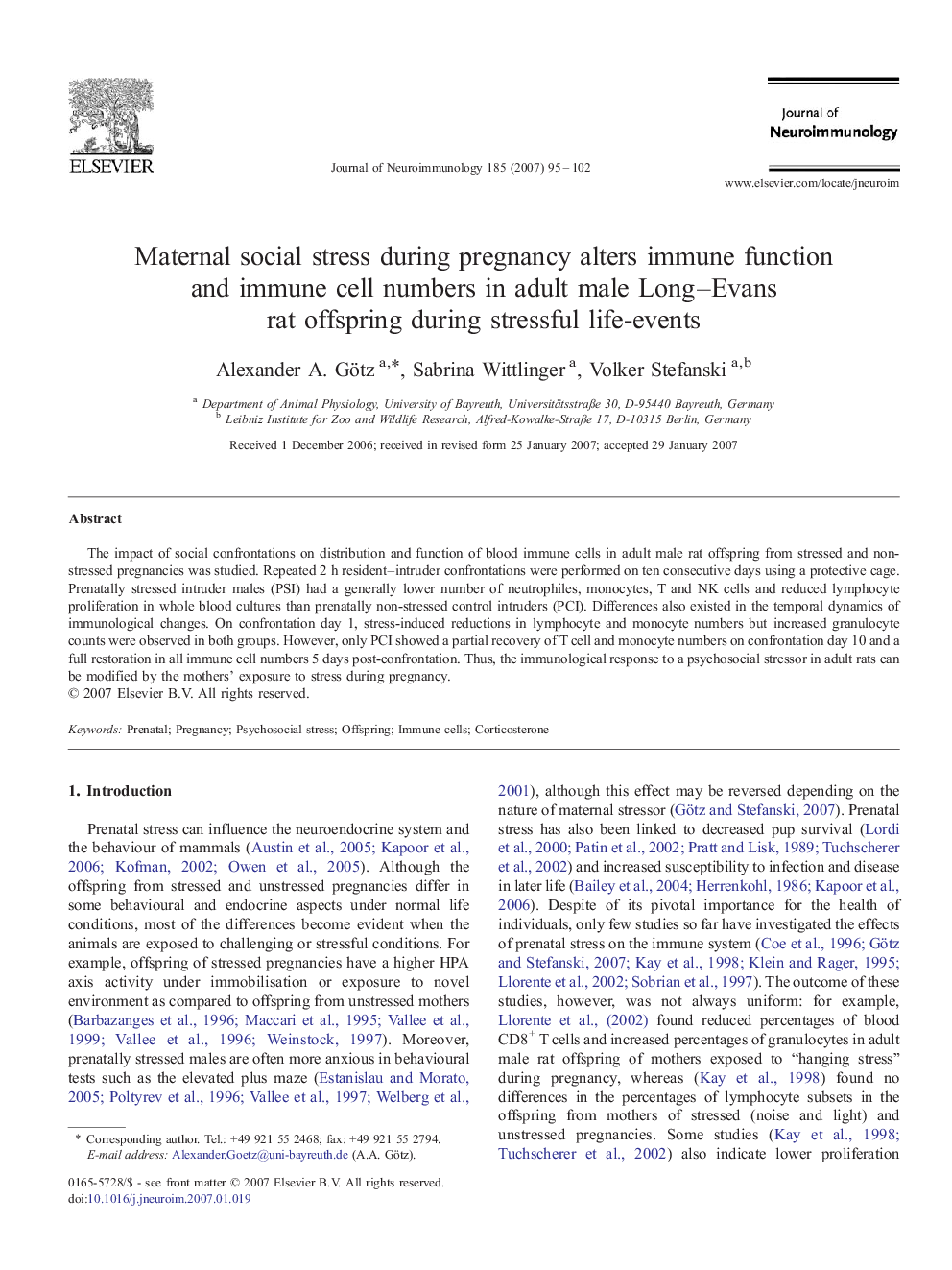| Article ID | Journal | Published Year | Pages | File Type |
|---|---|---|---|---|
| 3065581 | Journal of Neuroimmunology | 2007 | 8 Pages |
The impact of social confrontations on distribution and function of blood immune cells in adult male rat offspring from stressed and non-stressed pregnancies was studied. Repeated 2 h resident–intruder confrontations were performed on ten consecutive days using a protective cage. Prenatally stressed intruder males (PSI) had a generally lower number of neutrophiles, monocytes, T and NK cells and reduced lymphocyte proliferation in whole blood cultures than prenatally non-stressed control intruders (PCI). Differences also existed in the temporal dynamics of immunological changes. On confrontation day 1, stress-induced reductions in lymphocyte and monocyte numbers but increased granulocyte counts were observed in both groups. However, only PCI showed a partial recovery of T cell and monocyte numbers on confrontation day 10 and a full restoration in all immune cell numbers 5 days post-confrontation. Thus, the immunological response to a psychosocial stressor in adult rats can be modified by the mothers’ exposure to stress during pregnancy.
